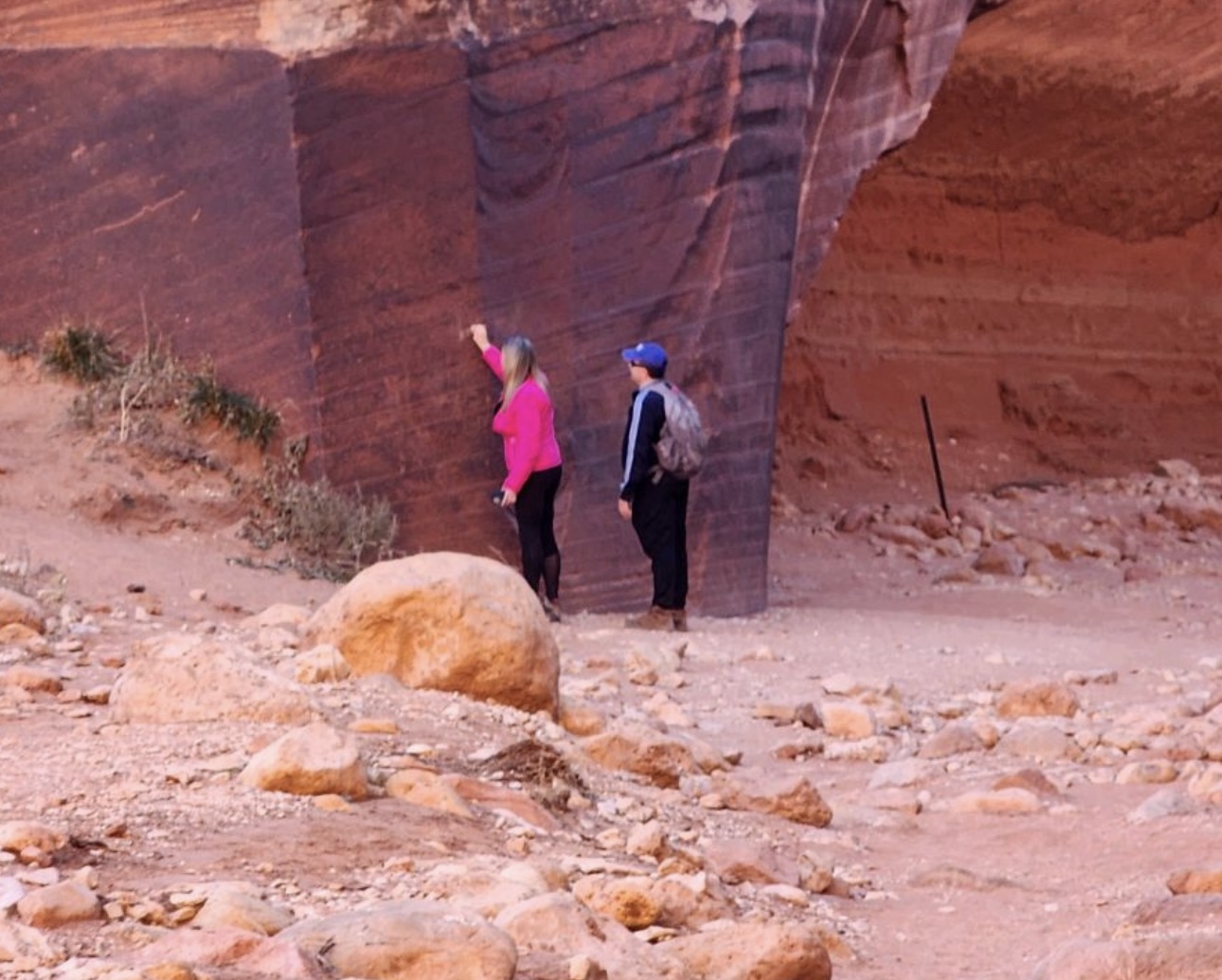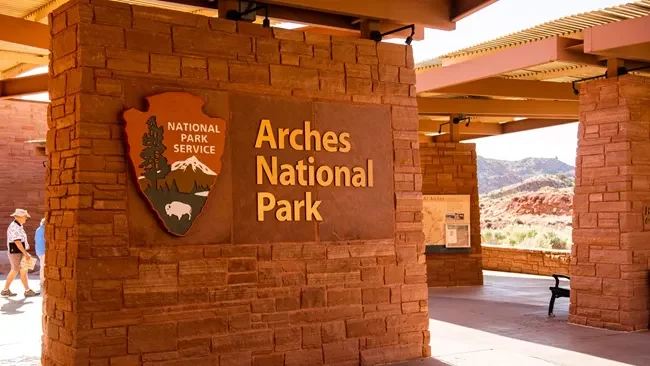Some information may be outdated.
A promising piece of legislation that would impact Grand County and Moab’s finances has been derailed, at least temporarily, by the tourism industry.
“In my head, it looks like a trainwreck,” said Grand County Council administrator-in-training and former County Clerk/Auditor Chris Baird, envisioning a future in which the county would have to face a choice between cutting services or raising property taxes again.
Baird gave an update at a Feb. 18 joint meeting of the Moab City and Grand County councils on the longstanding attempts to change Utah’s Transient Room Tax, a state tax applied to hotels and motels and redirected back to areas with high tourism.
Grand County is in the top five counties for highest TRT revenue, collecting more than $5 million yearly. However, officials say those funds aren’t enough to mitigate the impact of the estimated 3 million yearly visitors to the area, particularly since a large percentage of the funds (two-thirds of the first 3% of the 4.5% tax, which works out to about 47% in total) must, by law, be spent on tourism and recreation promotion rather than infrastructure.
Baird said that split did not leave enough money to properly fund Grand County services and infrastructure, which struggle to serve increasing numbers of tourists drawn in by advertising campaigns.
“To expect that our 6,000 property owners are going to be able to prop up the infrastructure and the costs associated with providing services to millions of tourists a year: it’s just not possible,” Baird said.
Trying to change the split
Baird attributed the 2020 Grand County property tax increase to the impact of increased tourism due to the required advertising.
“The promotion and the growth we’re experiencing in this community is creating expenses that exceed the revenue that’s coming in,” said Baird, “It’s a bad business plan… It’s not fair to go to our property owners to have them pay for infrastructure that’s to support tourism and tourism-related services.”
The situation has been contentious for years, but meetings with local elected officials, State Rep. Carl Albrecht, local business owners, tourism officials from the Moab Area Travel Council and other stakeholders in 2019 led to recommendations on how to reform the state law to better serve Grand County and other areas in the state impacted by tourism by altering the percentage required to be spent on tourism promotion. Albrecht’s District 70 encompasses Grand, San Juan, Emery and Carbon counties.
While tourism officials in Grand County were reportedly satisfied with the recommended plan, last-minute changes to the bill as introduced to the State Legislature reduced the proposed changes after an appeal by tourism officials. The bill, HB 280, was passed by the Utah House of Representatives on Monday. It is currently before the Senate Rules Committee.
The disappointment of local officials in the bill was palpable.
“I don’t know how it went from where it started and ended up where it is now,” said Baird, “I think there was some negotiation and I’m sure it was with the tourism lobby.”
County Councilmember Curtis Wells reported that that suspicion was confirmed by Rep. Albrecht.
“The rationale from the sponsor of the bill,” said Wells, “for the formula amendments not being aligned with what Grand County recommended is that he really wanted to find consensus and compromise with the tourism industry association people.”
In a conversation with the Moab Sun News, Wells said he’d “be lying if I said I wasn’t disappointed,” offering his opinion that the recommendations put together last year were a hard-earned consensus that would have protected current spending on tourism promotion while also freeing up revenue to address tourism impacts.
“This vital component was in draft versions of the bill but was recently negotiated out,” Well’s wrote.
“We’re going to have very little change from year to year,” commented Grand County Chair Mary McGann at the joint meeting, looking at the revised legislation.
Baird agreed, commending that while the bill would gradually change the percentage split, as currently proposed the legislation would not impact Grand County for “decades.”
“It’s going to be really, really slow. It’s not a substantive change to the TRT and it won’t be any real help to Grand County,” said Baird.
“We’re going to come to a crisis state long before that point,” he said ominously.
Dim possibility for reform this year
Grand County is one of several counties in the state looking for reform to the law. A 2019 audit by the Utah Legislative Auditor General’s Office showed at least eight counties wanted state lawmakers to allow more discretion on how to spend the money.
“The tax is there, it doesn’t need to be increased. Just the proportion and the split needs to be divvied up differently,” said Baird.
McGann questioned how to move forward on the bill as presented to the Legislature, whether continuing to lobby for changes this year or “next year, go back to the drawing board.”
“I want to see how we can move forward…and make the formula better,” McGann said.
However, Wells was pessimistic on the possibility of changing the bill before the legislature.
“Carl is very, very adamant that he’s comfortable with where it’s at and it’s his bill. It’s a delicate situation,” said Wells. “You don’t want to be dealing with one of your two state representatives and feel like you’re going around him to change things. You want to be able to address him directly with disagreement.”
Wells recommended that officials reach out directly to Rep. Albrecht to be heard.
“I don’t think we need to make an ultimatum for this year’s session,” said Baird, “but we need to key our legislators into our needs…even if that means a multi-year legislative strategy.”
The Utah State Legislature’s 2020 general session ends on March 12.
The future of the TRT
“These things take time,” said Wells, noting that getting their recommendations before a member of leadership at the Legislature was an achievement.
Baird acknowledged that changing laws and creating legislation is a significant commitment of time, but cautioned elected officials that “from the financial perspective, the crunch is going to happen very soon.”
“I’m not so sure that it’s really understood how critical this legislation is for Grand County’s health,” said Baird. “I really feel like a lack of TRT reform is creating an existential question for the Travel Council and for tourism promotion in Grand County,” he said, raising the idea of withdrawing from participation in the TRT altogether.
Baird said that it was possible that Grand County could face another property tax increase or a reduction in staff as soon as this year.
“I think we’re coming to the point where, if we start to see the need to increase property taxes every year or cut essential statutory services, that’s going to cause something drastic to happen,” Baird said. “I don’t know what it is, but it’s going to be bad.”
Appreciate the coverage? Help keep local news alive.
Chip in to support the Moab Sun News.




